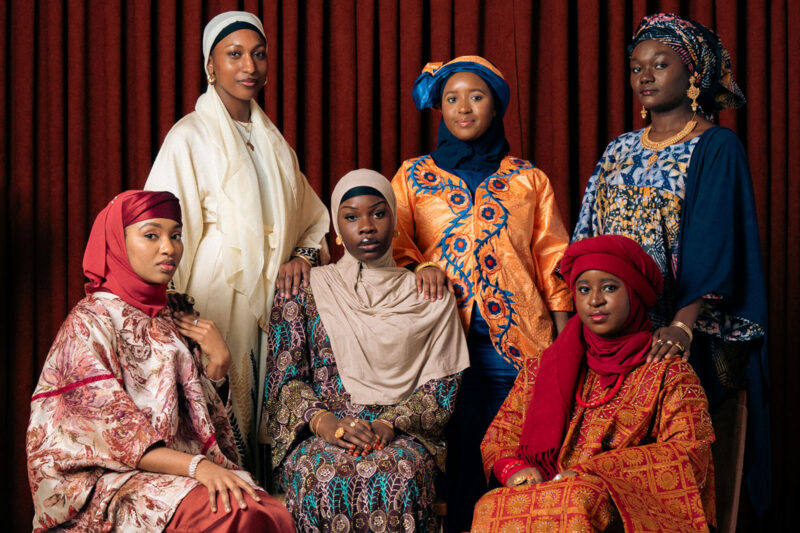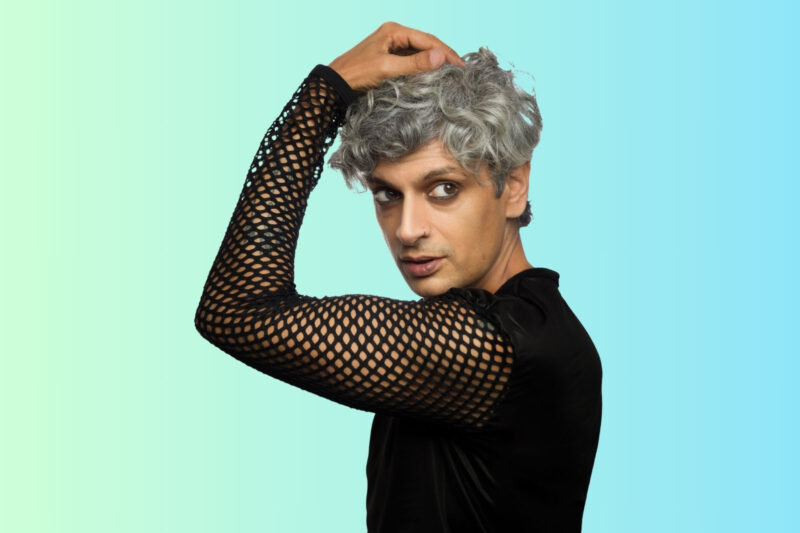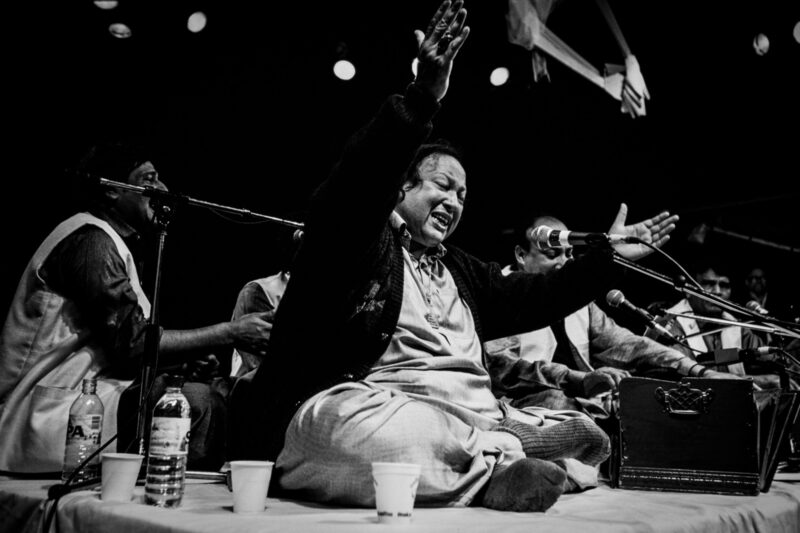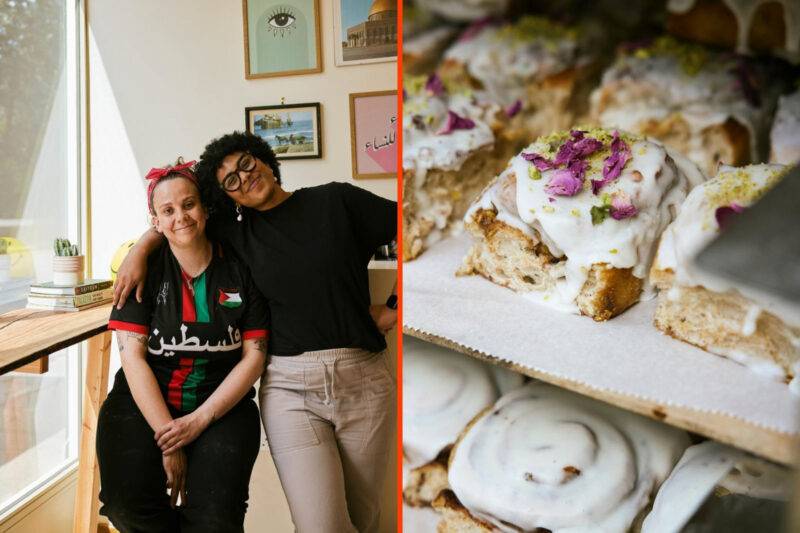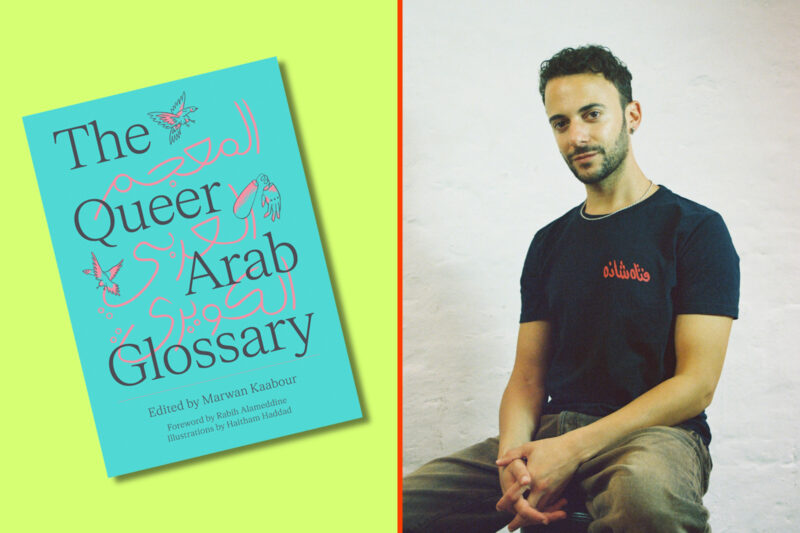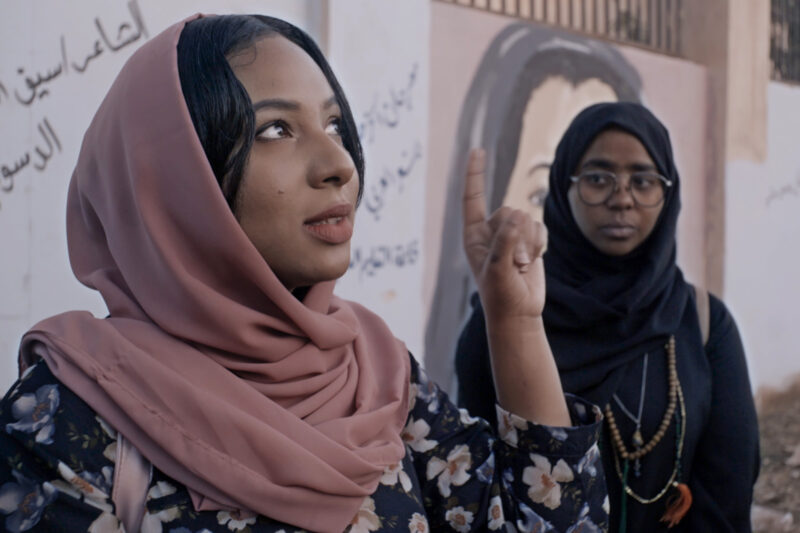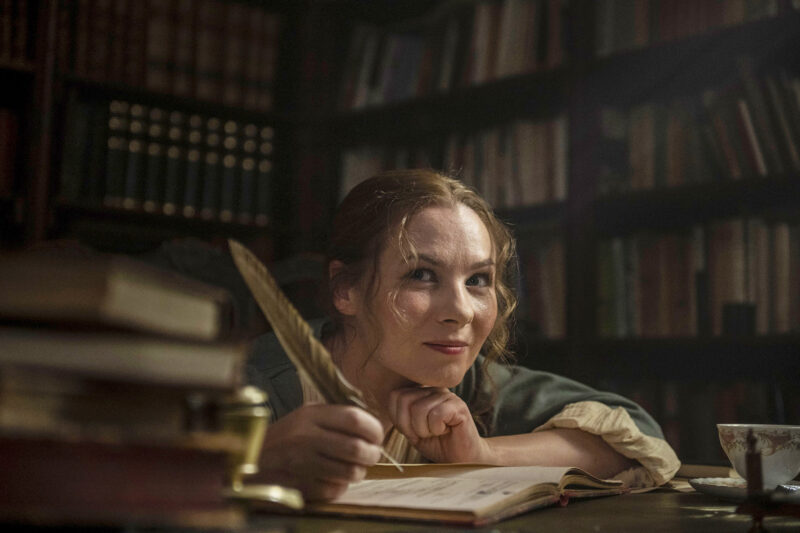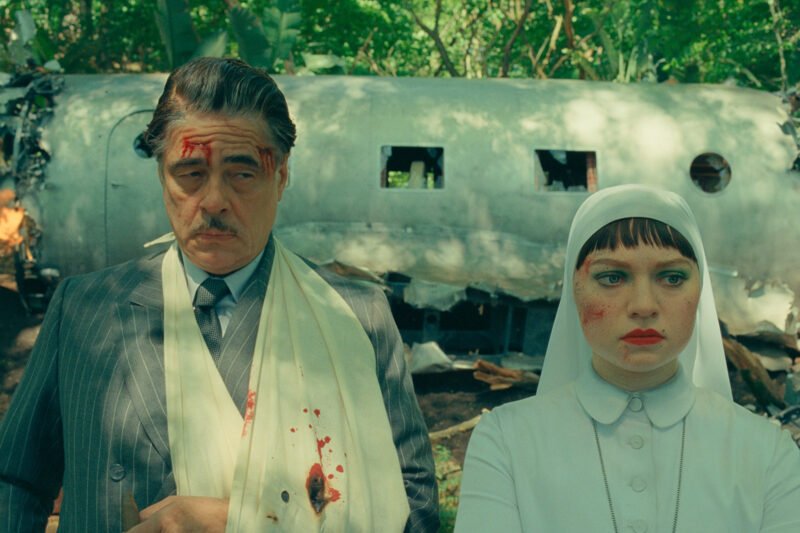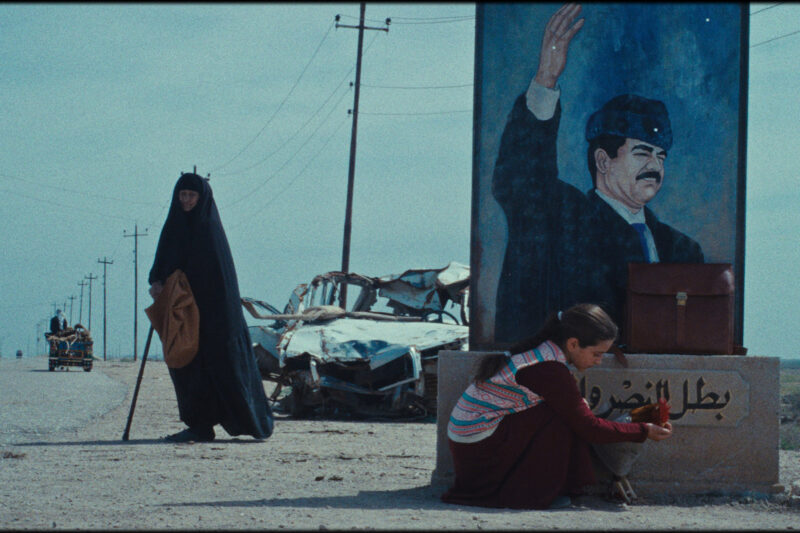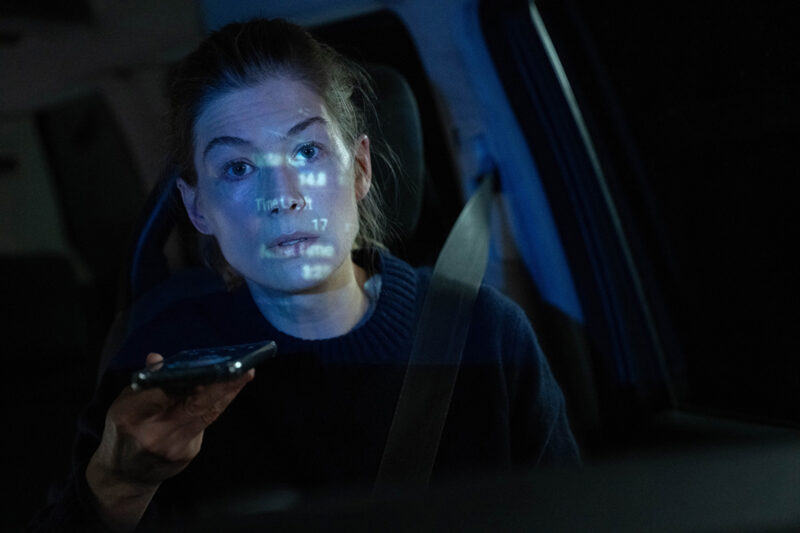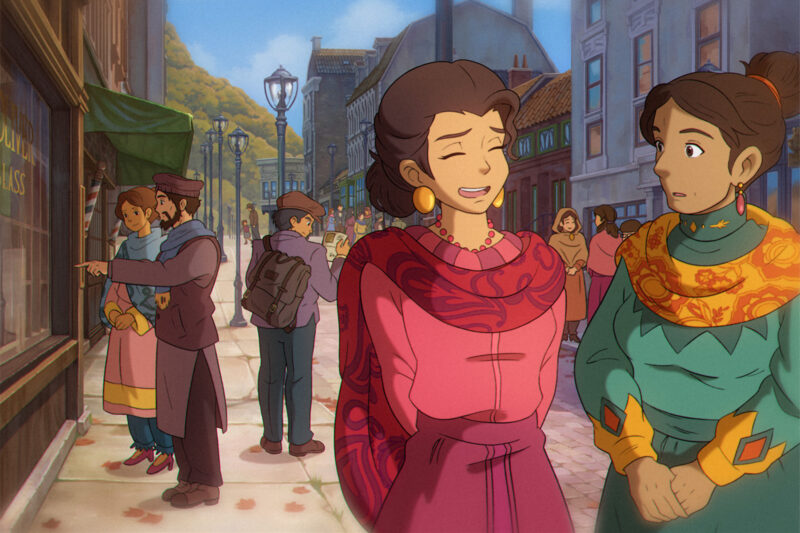Fawzia Mirza on The Queen of My Dreams: ‘Love and joy are revolutionary’
The writer-director speaks to Hyphen about her first feature film, now in cinemas, drawing on her own experience as a queer Pakistani Muslim
–
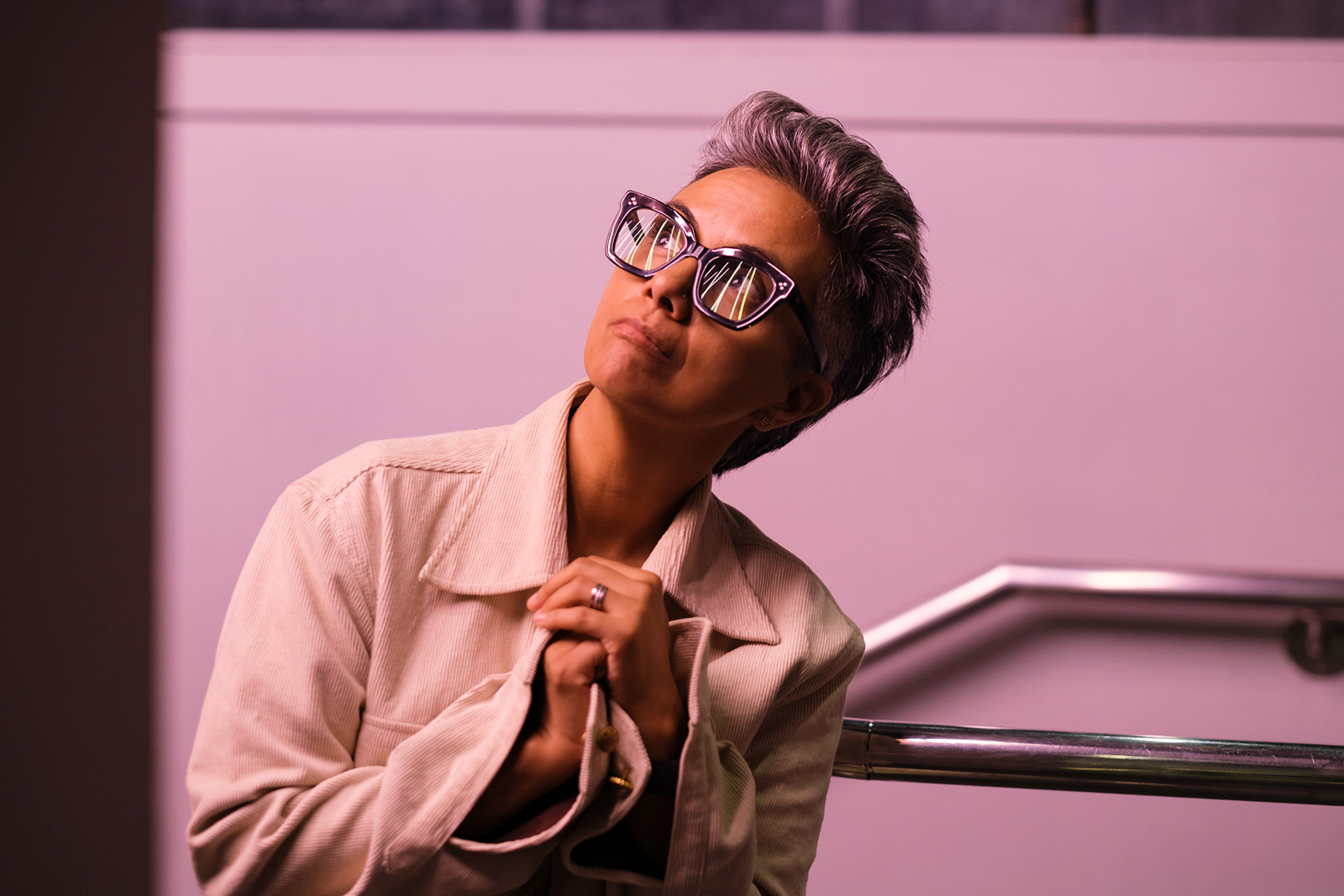
Fawzia Mirza learned about love through old Bollywood movies. As a child, she thought “some guy was going to sing to me, then I’ll just know that I found love. That idea that you would have love at first sight was something I grew up watching and dreaming about,” she says.
But as Mirza grew older, she no longer saw herself in those stories. The writer-director knew she was queer in her early teens, and came out in her late twenties. “I was like oh, shit. What does this mean about love and romance for me? Do I still get to have this?”
Mirza, now based in Los Angeles, is in the UK to promote the theatrical release of her debut feature film, The Queen of My Dreams, a coming-of-age drama with queer love at the centre. We follow Azra, a young Pakistani-Canadian Muslim played by Amrit Kaur, on a personal journey navigating her complicated relationship with her conservative mother. It is semi-autobiographical, exploring culture and faith close to Mirza’s own experience.
The film transports viewers back in time, tracing Azra’s mother (Nimra Bucha) and father’s (Hamza Haq) own love story, before they married and emigrated to Canada. The Queen of My Dreams is an ode to a version of Pakistan that is rarely seen on screen. Mirza was keen to go back to the past that her elders would have experienced, coloured by traditional Qawwali bands and dance-filled nightlife. “Something that I centre my work on is joy and aspirational storytelling — aspirational life and worlds and relationships,” she says excitedly, as we sit together in a quiet Curzon cinema in central London.
“Through embracing my identities, I realised the Queen of my Dreams is also about self-love. It’s about being your own queen.” She feels her film holds an important space when so many stories about minority communities tend to focus on suffering: “The rest of the world is centring stories about our trauma, centring the violence perpetrated against our communities. I don’t need to do that, you know? We’re seeing the violence perpetrated against us, and in places like Gaza and all over the world. We’re too familiar with violence, so I find love and joy are revolutionary.”
The Queen of My Dreams is tied together by Mirza’s love of the 1969 Bollywood classic Aradhana. She took its title from the song Mere Sapno Ki Rani, which Arun (Rajesh Khanna) sings to love interest Vadhana (Sharmila Tagore), serenading her from an open-top jeep. Mirza used to find that kind of traditional, heteronormative representation of gender and sexuality jarring, but now she is putting herself in those stories. “My future is much more expansive than that,” she says.
“When I started coming out, I decided that if I was going to be out, I wanted to be all the way out, and I didn’t want to sacrifice everything I was raised with in order to be queer,” Mirza says, on challenging traditional attitudes in South Asian culture.
“It didn’t happen overnight, but everyone has an opinion on your life, and whether you’re straight or queer, aunties will always have a say about who you are or what you’re wearing or who you’re with.”
Born in London, Ontario to Pakistani parents, Mirza set part of The Queen of My Dreams where she later grew up in Sydney, Nova Scotia. In her twenties, Mirza began a career as an actor after attending law school in Chicago, before turning to writing and directing in 2019 with the short film Saya (Shadow).
Mirza’s identity and heritage is proudly displayed throughout her work, as her writing, producing and directing credits centre LGBTQI+ stories, particularly relating to being a queer Muslim woman — something she says was important to gain visibility for women and brown performers. In 2019, she co-wrote the first queer, Muslim romance on network TV in the US, Ava Duverney’s The Red Line. A year later Mirza co-founded production company Baby Daal Productions alongside her wife, Andrea Wilson Mirza, to amplify other under-represented artists.
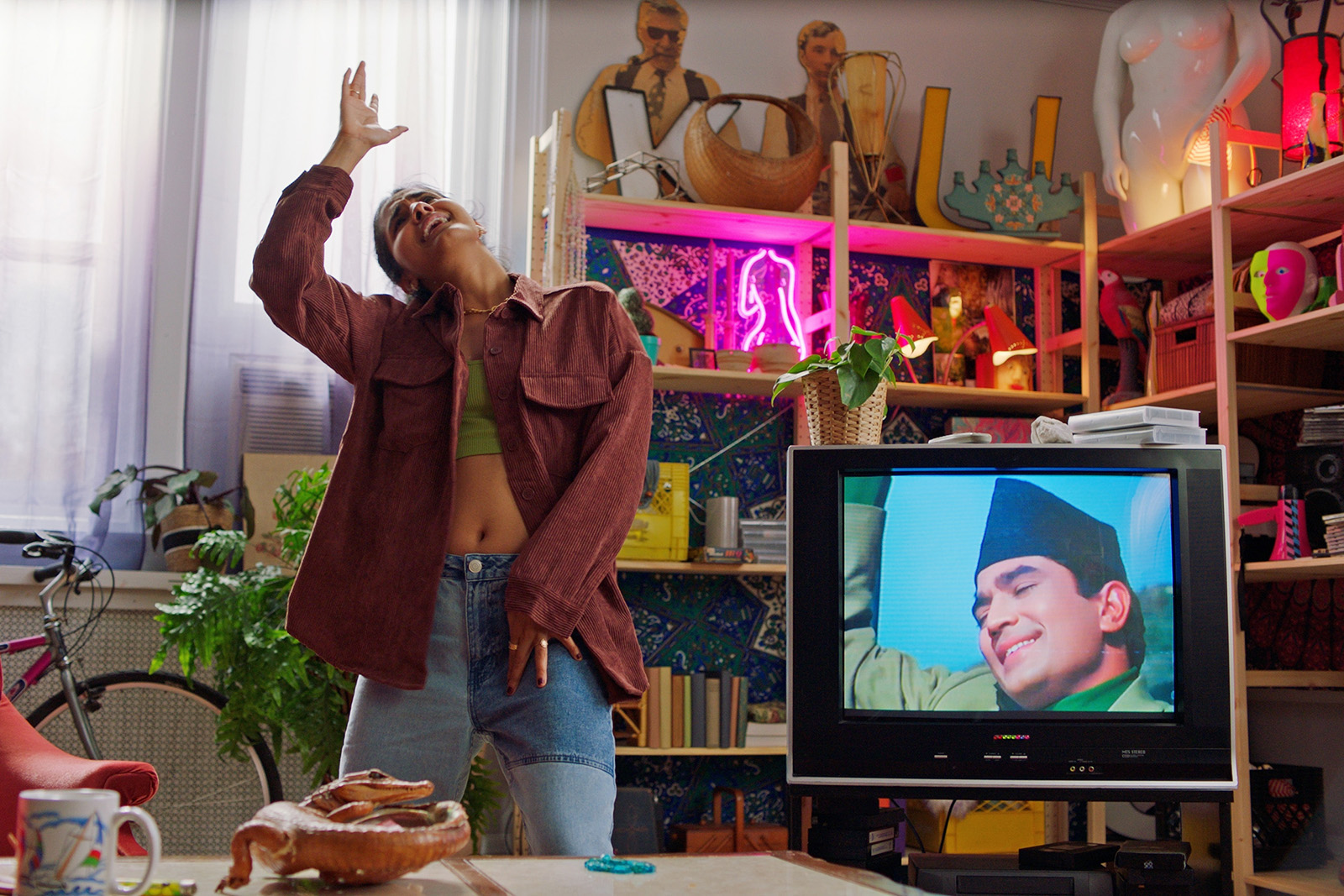
The Queen of My Dreams had a successful run at film festivals in 2023, and went on to receive five Canadian Screen Award nominations, but these kinds of stories — and Mirza herself — are still isolated in an industry that doesn’t give space to marginalised communities. “Hollywood is not designed for us. It’s a system governed by capitalism, which is also not designed for us. It’s designed to make money. So that truth is always, ever present. And I say that because I think it’s helpful to know that that’s the system we’re working in.”
Mirza acknowledges that carrying that weight is exhausting, but views this kind of representation as central to the future of the arts. “We have to believe that an aspirational world is possible, and so you and your writing and your work are part of that aspirational future,” she says, adding: “We have to be relentless, and we have to have faith that our story is needed.”
Mirza sees a lot of this movement and change reflected in London, as she continues on her promotional tour. “I love bringing my work here, because I see us everywhere in a way that’s totally different from being in the US or Canada. We’re literally on every fucking menu here, and our people are everywhere. Our names are everywhere. I mean, that is beautiful,” she says. “We’re in the home of the great coloniser, but brown people are a force here too, and that is really inspiring to see.”
The Queen of My Dreams is in UK cinemas now.
 Newsletter
Newsletter

